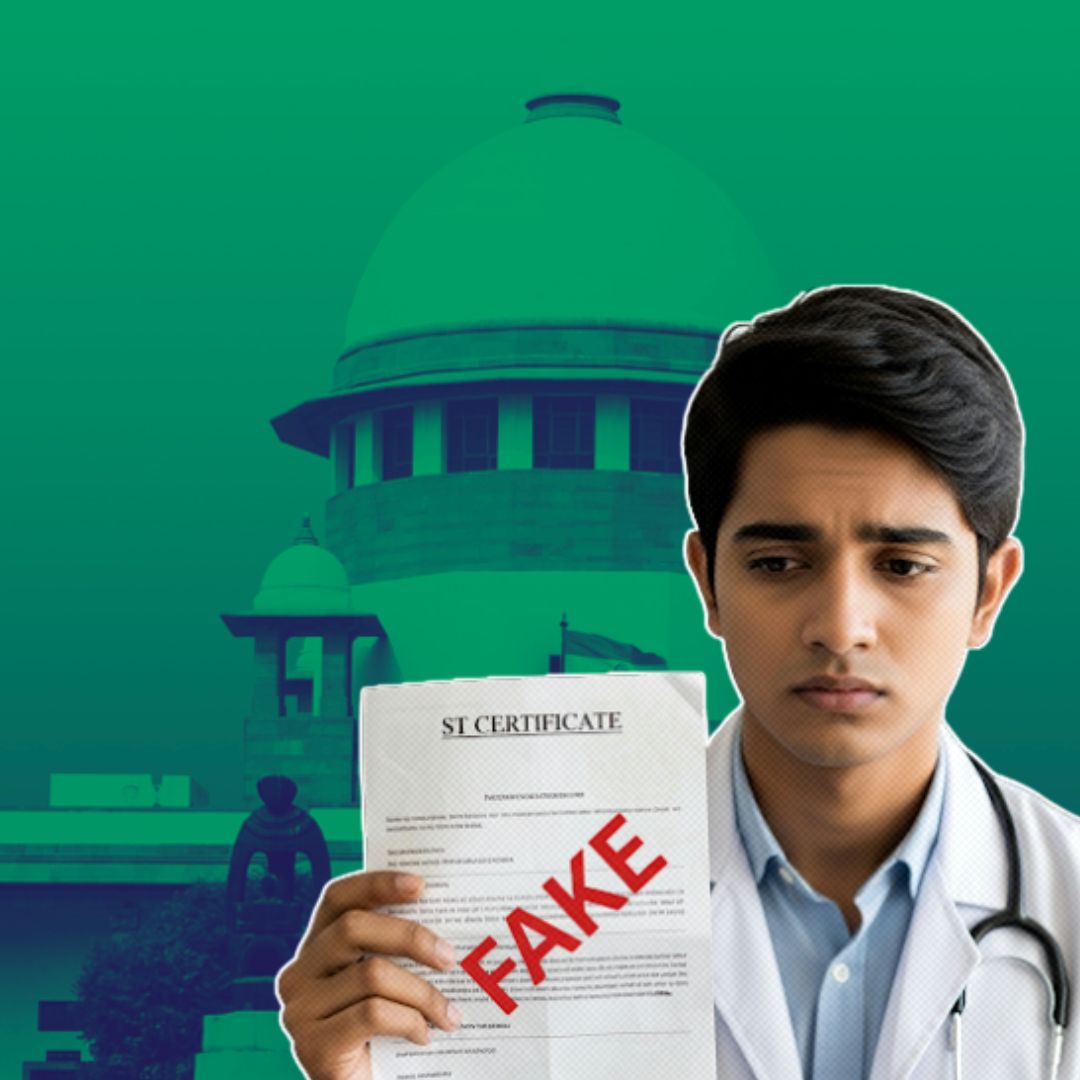In a landmark verdict delivered on August 25, 2025, the Supreme Court of India allowed a student to retain her MBBS degree obtained under the Scheduled Tribe (ST) quota despite being later found ineligible due to invalid caste certification.
The court ruled that although the student had no direct fault, her father, responsible for the misrepresentation, must pay ₹5 lakh as compensation to the state for the loss caused to a rightful ST candidate. Justices J B Pardiwala and K V Vishwanathan balanced equity and accountability by protecting the student’s career while addressing misuse of reservation benefits.
The Court’s Reasoned Balancing Act
The judgment came after a detailed hearing where the court considered the consequences of annulling the student’s degree after she had completed her medical course and began postgraduate studies. The bench underscored the injustice of penalising students who have invested years into professional education for errors orchestrated by their guardians. “An innocent student should not be made to suffer due to the fraudulent acts of others,” the judgement noted.
However, the court was equally firm about preserving the integrity of the reservation system, which is designed to provide fair opportunities to historically marginalised communities. By ordering the father to pay compensation of ₹5 lakh, the court imposed accountability on the party responsible for the misuse without demolishing the student’s future. This nuanced verdict attempts to uphold social justice while deterring exploitation of reserved seats.
The Supreme Court’s decision also underscores the judiciary’s evolving approach to balancing rigid legal principles with compassion, especially in educational matters that shape young professionals’ futures and societal progress.
Broader Context: Reservation and Misuse Challenge
India’s system of reservations for Scheduled Castes (SC), Scheduled Tribes (ST), and Other Backward Classes (OBC) is a constitutional mechanism to promote social equity. It facilitates access to education and employment for communities that have historically faced discrimination and exclusion. Unfortunately, the policy’s success is threatened by occasional fraudulent claims and false caste certificates, which deny rightful beneficiaries their due opportunities.
The student’s case is among several high-profile instances where misuse of caste certificates in professional courses has come under judicial scrutiny. Previously, courts have at times cancelled degrees outright, but this ruling emboldens a more compassionate approach. It recognises that students, especially young ones newly initiating their careers, can be unfairly burdened by familial misdeeds and stresses the need for safeguards that do not destroy livelihoods.
The Logical Indian’s Perspective
The Supreme Court’s decision exemplifies how justice must be tempered with empathy and realism. Protecting the interests of disadvantaged groups through reservations remains vital, but the system must also differentiate between intentional fraud and innocent beneficiaries caught in unfortunate circumstances. By holding the parent financially responsible while protecting the student, the ruling promotes accountability balanced by kindness—values central to The Logical Indian’s commitment to empathetic social dialogue.
It also signals a call for stronger verification mechanisms at the admission stage to prevent such misuse from occurring in the first place, protecting genuine candidates from being deprived.












